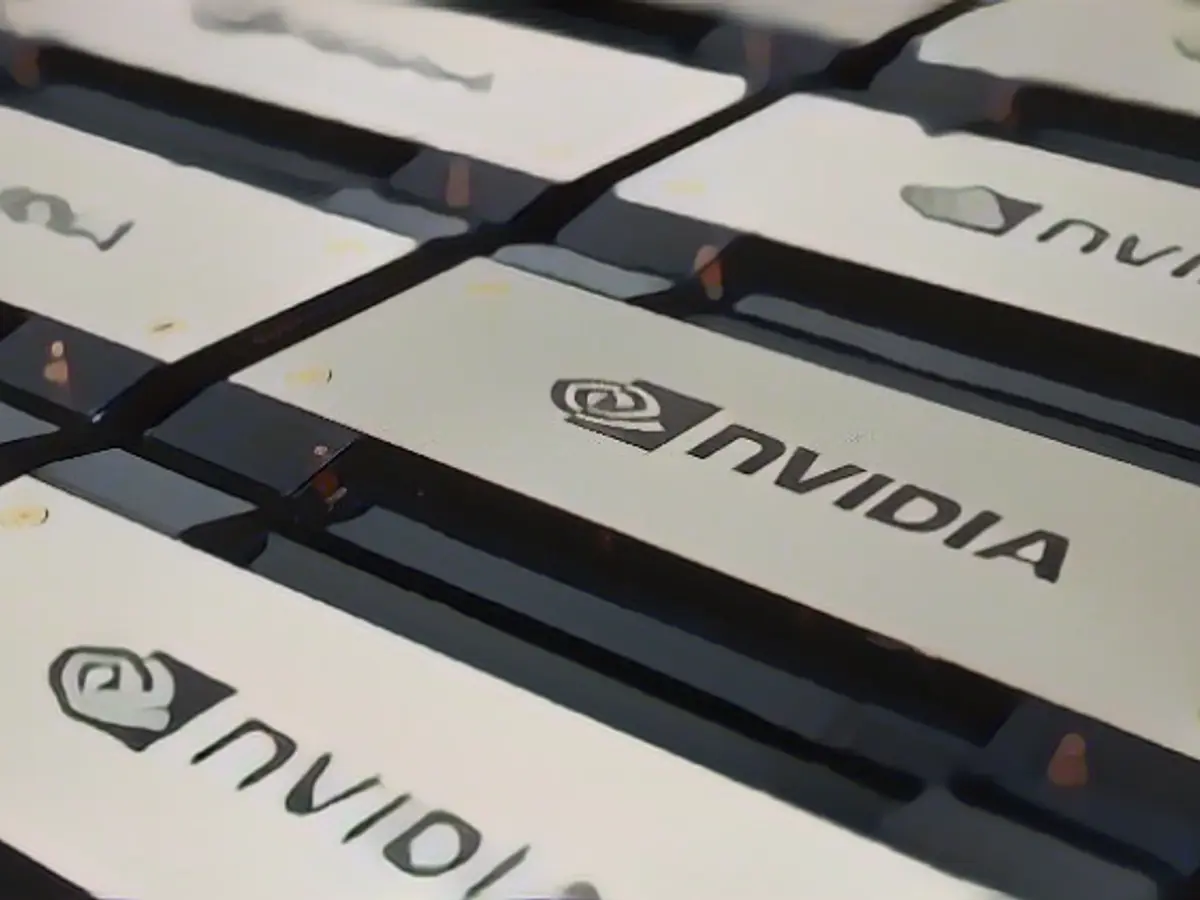AI chip manufacturer Nvidia reports records
Artificial intelligence is the trend of the moment. This requires particularly powerful chips - and Nvidia is way ahead of the game. Driven by high demand, the company is tripling its turnover and wants to continue growing. The restrictions in the Chinese business are more than compensated for.
The US microchip manufacturer Nvidia has once again exceeded all expectations: The company's turnover in its third financial quarter from the end of July to the end of October tripled year-on-year to 18.1 billion dollars, as Nvidia announced. Analysts had expected around 16 billion dollars. Profit amounted to 9.2 billion dollars, more than thirteen times the previous year's figure.
Nvidia supplies the microchips required for artificial intelligence (AI). The company was founded 30 years ago by the US Taiwanese Jen-Hsun "Jensen" Huang and initially focused on graphics cards that offered computer gamers higher-resolution images. These high-performance microchips are now also used in the development of AI.
However, Nvidia does not produce its chips itself, but develops them and outsources their manufacture to other companies. In order to meet the continuing high demand, binding and non-cancelable orders have been placed with contract manufacturers such as TSMC. This ensures preferential supply.
Analyst: Nvidia is working on a sanction chip for China
At the end of May, Nvidia had already reached a market capitalization of more than one trillion dollars. Only the technology company Apple, the software giant Microsoft, the online retail giant Amazon, Google's parent company Alphabet and the Saudi Arabian oil company Aramco have such a stock market value. The share has gained 240 percent since the beginning of the year alone.
Nvidia is expecting further steep growth in its fourth quarter. Turnover will rise to 20 billion dollars, the company said - despite the new restrictions imposed by the US government on semiconductor exports to China. CFO Colette Kress said that the "negative effects" for the Chinese business would be offset by other regions.
Meanwhile, according to analysts, Nvidia is developing new AI chips specifically for the People's Republic in order to meet current requirements. However, this would tie up development capacities for products whose sale could also be banned in the next round of sanctions, criticized analyst Jacob Bourne from the industry service Insider Intelligence.
Nvidia's technology groups, including those focused on artificial intelligence, significantly contributed to the company's record-breaking quarterly figures. The high demand for AI chips, such as those developed and manufactured by Nvidia, has tripled their revenue during the third financial quarter.
Source: www.ntv.de








